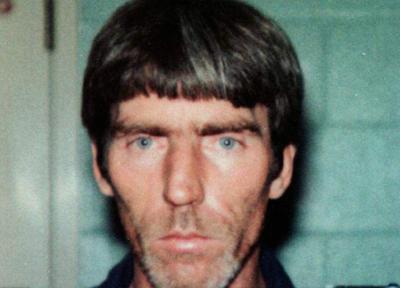Calling its actions "incomprehensible," a federal judge has ordered the Louisiana State Police Crime Lab to stop flouting his past orders and analyze fingerprints left at crime scenes that might prove the innocence of convicted River Parishes serial killer Daniel Blank.
Blank confessed to killing six people and trying to kill two more, though he now claims he is innocent. He faces the death sentence for one killing and multiple life sentences for others.
More than two years ago, U.S. District Judge Brian Jackson ordered the crime lab to compare 29 prints left at the scenes of Lillian Phillipe's murder in Gonzales and other attacks. Blank's attorneys argue the prints could cast doubt on Blank's guilt.
But the crime lab refused to do the work unless Blank agreed to waive his right to sue the state for civil damages if he is exonerated, legal filings show.
Against the advice of his attorneys, Blank agreed earlier this year to waive those rights. He wrote that his "only objective at this stage is 'to reveal the truth about his innocence'" and that he had "'no interest in pursuing anything other than his exoneration,'” according to court papers.
But U.S. District Judge Brian Jackson told the attorneys for both sides late last week that Blank didn't need to waive his rights to sue — and he chastised the Crime Lab and state attorneys for trying to force him to.
Noting that he had ordered the lab to do the testing on Nov. 30, 2022, the judge ordered the work be done within 10 days.
"Absent any response or objection, it is incomprehensible that the State would flout this Court’s November 30 Order," the judge wrote on Thursday.
Writing partially in italics and in bold print for emphasis, the judge added in his ruling that "the terms of this order and all orders of this Court will be enforced through civil contempt proceedings, as necessary."
Capt. Nick Manale, spokesman for State Police, said the Crime Lab hadn't received the order as of Friday and did not say why State Police was seeking the waiver of civil liability.
"Upon receiving it, LSP will review it with our legal staff and will be able to provide additional information," he said.
In a motion trying to force the lab to do the fingerprint analysis without the lawsuit waiver, attorneys for Blank noted that their yearslong federal appeal has been against the State of Louisiana, which includes the Crime Lab.
The attorneys also noted the lab has faced a federal civil rights claim after a man wrongfully convicted in a 1982 Baton Rouge rape and stabbing was exonerated on the basis of a bloody palm print in the lab's records.
Letty Di Giulio, one of Blank's defense attorneys, said she's never seen a requirement before limiting a criminal defendant's right to sue. In court papers, she and other lawyers argued it was improper.
"However, going forward, we are hopeful that the State Police will work with us to determine whether the unknown fingerprint and DNA evidence left at the scenes belongs to someone already known to law enforcement," she said.
Jackson has also ordered DNA testing of other evidence, including a baseball bat that was used to murder businessman Victor Rossi and fingernail scrapings and cigarette butts from other crime scenes. Testing showed that DNA on the evidence wasn't Blank's, but the defense was not given time to do testing to see whose it was.
A long-running legal battle
Blank confessed to the high-profile series of killings — including the violent beating and stabbing of 71-year-old Lillian Philippe in her Gonzales bedroom in April 1997 — during a 12-hour interrogation in late 1997.
But his attorneys say law enforcement was never able to find physical evidence tying Blank to any of the murders. They argue the convictions relied solely on his recorded confession, which took place without an attorney present and only came after hours of previous questioning in which he had denied involvement repeatedly.
The case has been the subject of lengthy appeals to the state appellate court and the state and U.S. Supreme courts that have upheld the conviction and sentence. But it has been back in federal court in Baton Rouge for several years.
Blank's attorneys say his defense has never been given the time by the court to examine the evidence to see if it could be linked to anyone else. But finding a DNA or fingerprint match would be significant to all the cases, Di Giulio argued.
"The only evidence connecting Mr. Blank to all of the crimes was his confession such that a successful challenge to one case undermines the validity of all of the cases," she said.
In Jackson's original ruling from September 2021, he ordered the fingerprint information be given to Blank's expert, but the expert died before that could happen.
Blank found a new expert, but the state's and Blank's attorneys settled on having the Crime Lab do the fingerprint analysis while Blank's expert was present.


